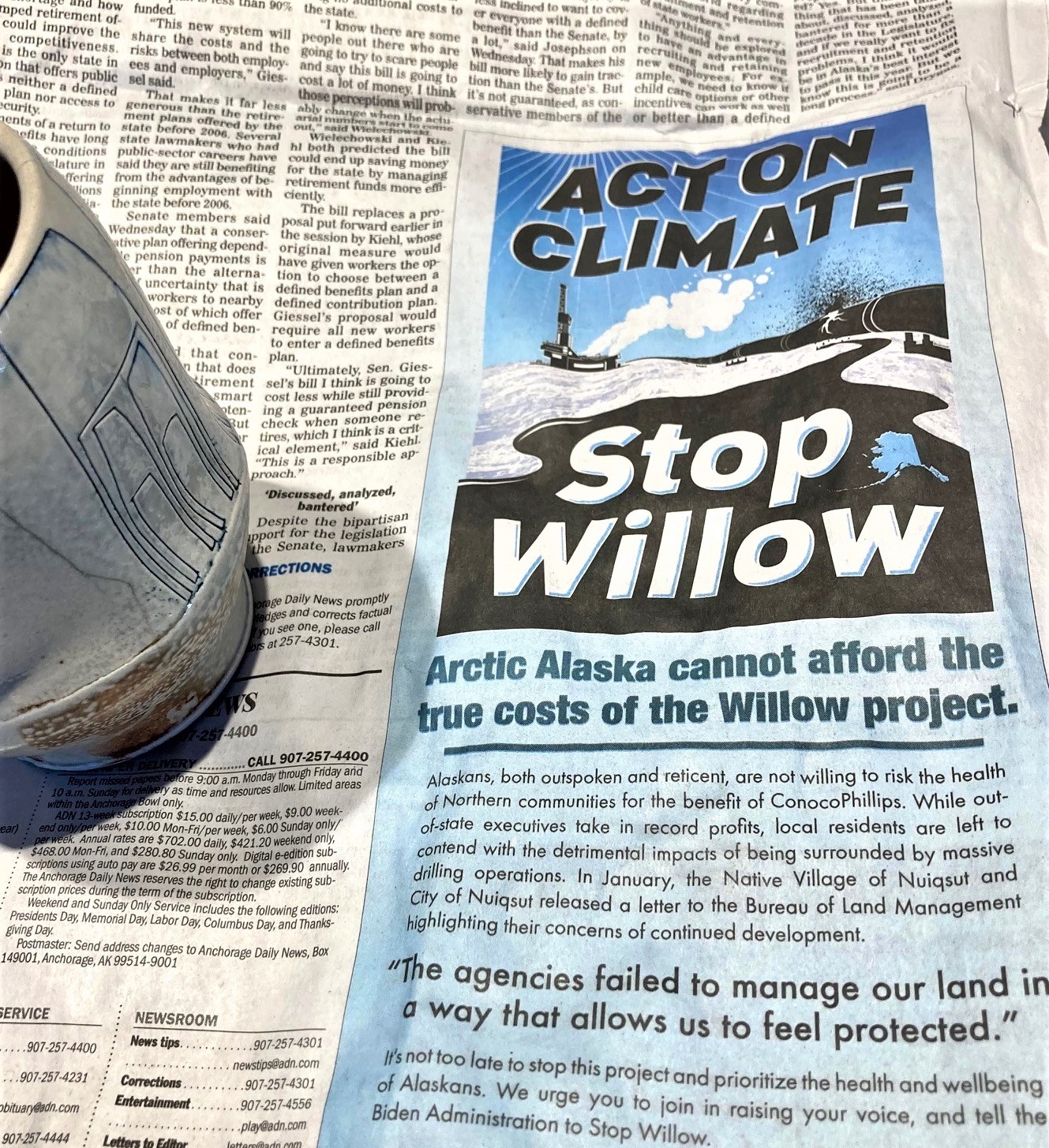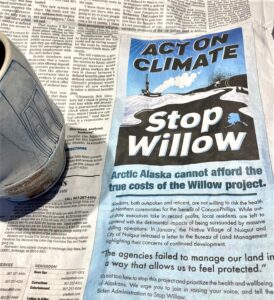
Taking the Willow project to court. Again.
Five days after a U.S. Federal District Court ruling gave ConocoPhillips the go ahead to plow forward with its massive Willow oil and gas project in the western Arctic, we appealed the decision to the U.S. Ninth Circuit Court of Appeals. Soon, we will file a motion requesting that the court stop construction on Willow while the Ninth Circuit Court hears our case.
Here’s why. The massive carbon-polluting Willow project will destroy landscapes and drive climate change. Unlike the nourishing trees and shrubs from which the project derives its name, this drilling project will do real harm to local communities, animals, and the planet.

Millions of people galvanized around the “stop Willow” effort in March 2023. Photo by Dawnell Smith
“There’s a lot at stake here for climate and the health of the Arctic,” said Bridget Psarianos, senior staff attorney with Trustees. “We stand alongside our clients in holding agencies accountable to the law and trying to protect this place from further industrialization. ConocoPhillips has plans to start blasting gravel and building roads and pipelines in December, which would permanently change the region. It’s vital to stop this aggressive on-the-ground harm while the court hears this case.”
The lower court ruling
The District Court’s Nov. 9 decision concluded that the U.S. Bureau of Land Management looked at a reasonable range of alternatives and didn’t need to look at variations on the project that would better protect sensitive areas and subsistence users. We disagree.
The court relied heavily on the “need” for Conoco’s project and assumptions about the government’s obligations to allow oil and gas operations, without adequately considering the vast range of purposes these public lands include. The government has an obligation to protect these other uses of and roles for these public lands.
The purposes laid out in the law for these public lands extend to the health of local people, biodiversity, and the planet. Indeed, the statute at the center of this debate — the Naval Petroleum Reserves Production Act — protects special areas in the National Petroleum Reserve-Alaska, recognizing the importance of this western Arctic region to local communities, plants, and animals. And Willow would be constructed within these sensitive areas, including the Teshekpuk Lake Special Area.
The court decision further determined that the agency didn’t need to look at cumulative impacts from the project’s greenhouse gas emissions, though the effects of those emissions are exactly what we’re seeing in the Arctic and world. It also concluded that federal agencies need not consider how Willow’s greenhouse gas emissions decrease sea ice for polar bears and therefore threaten their survival.
Again, we disagree.
The court decision didn’t go our way, but we believe our claims are sound and that the Willow project, as approved, will do grave harm to local communities, Arctic animals, and the planet.
Stopping Willow means preventing harm
We filed an appeal already and will soon request an injunction pending appeal to prevent on-the-ground impacts while the appellate court rules on our case.

Teshekpuk Lake in the western Arctic teems with birds in the spring and summer, including brant geese. Photo by Tim Bowman, FWS.
ConocoPhillips has an aggressive construction plan, and an injunction would stop permanent destruction in the region during litigation. According to Conoco’s previously filed declarations, the company is planning an extensive amount of construction, including gravel mining and the construction of roads, pads, and pipelines. This construction would be extremely damaging to land and water in the region.
After the lower court’s ruling, Siqiñiq Maupin, executive director of Sovereign Inupiat for a Living Arctic, said that “it again shows that the oil and gas industry exerts incredible power over those whose health and food are most impacted and who will most experience the climate harm and disaster this project will flame. Companies and politicians continue to sacrifice places like Teshekpuk Lake and communities like Nuiqsuit for their benefit. We will continue to fight this project and protect Teshekpuk Lake.”
And so, we fight.


